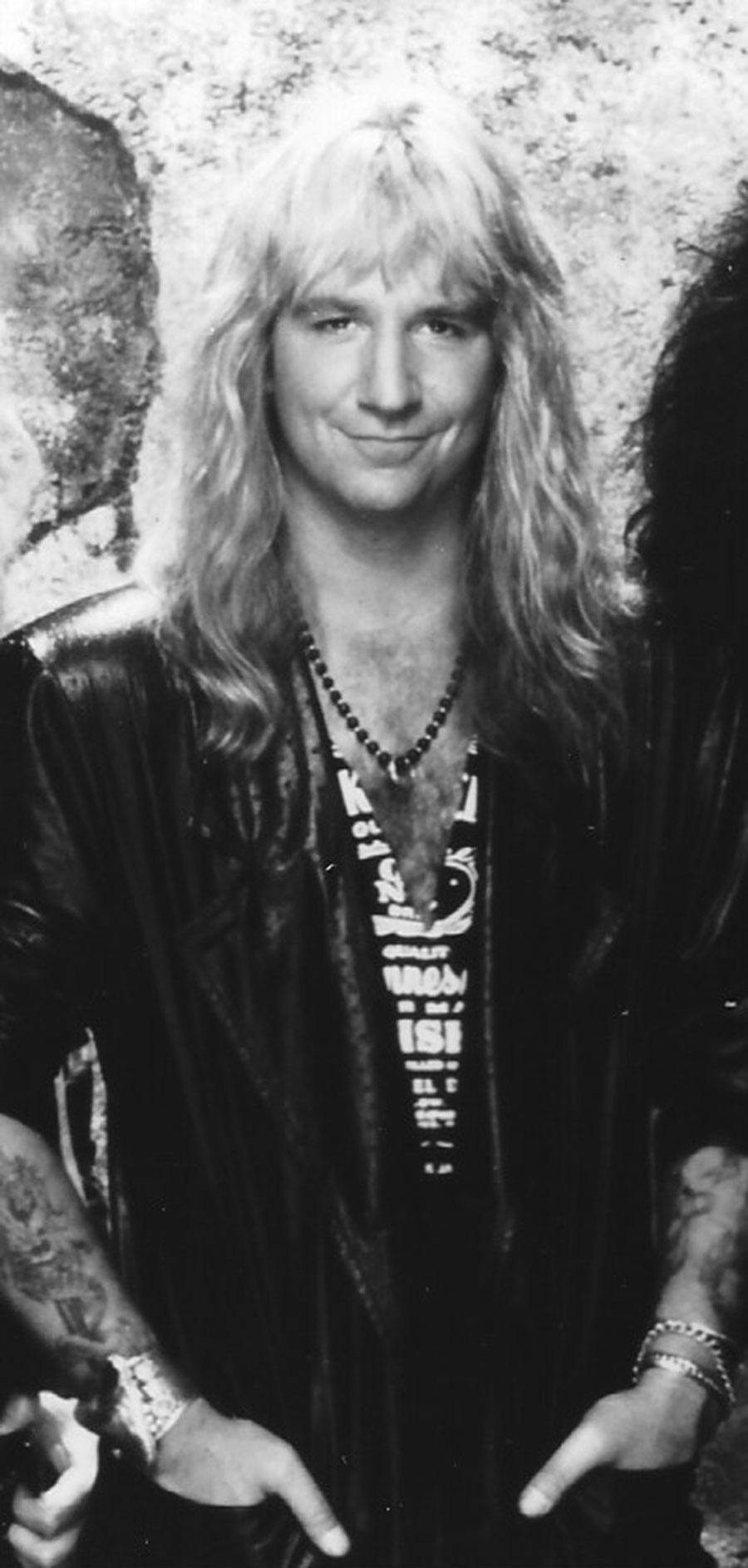Jack Russell—the frontman of Great White, the hard-rock band that peaked in the late ’80s with a cover of “Once Bitten Twice Shy” and was involved in one of the most tragic concerts in American history—died on August 15, 2024, of Lewy body dementia and muscle atrophy. He was 63 years old.
While Great White hailed from the Los Angeles area, the band members wanted no part of the Spandex-and-makeup trappings that marked the majority of the city’s pedestrian glam-rock acts. “I was born and raised in L.A., but most of the so-called L.A. bands aren’t even from here,” Russell said. “It’s a drag that those guys come here worrying about what they’re wearing instead of worrying about music.”
A bluesy sound set Great White apart, in Russell’s estimation. Much like Whitesnake, the band they opened for at Denver’s McNichols Arena in 1988, the members found success as “exiles from the ’70s” and worked in the blues-rock tradition of classic British bands.
Great White’s “overnight” popularity belied the group’s origins. The groundwork for success was laid in 1986, when the band covered “Face the Day” by Angel City (known as the Angels in native Australia), and the song went to No. 1 on several Los Angeles radio stations. “It was my idea (to record it),” Russell said. “I was over in London, really hung over, and a friend woke me at six in the morning to hear this song. It made so much sense to me, I knew we had to do it. The lyrics are right there for a Monday morning—‘I don’t wanna face the day.’”
Once Bitten, Great White’s 1987 album, sold more than a million copies. “Rock Me,” a seven-minute extravaganza, emerged as a rock radio hit despite its length, and “Save Your Love,” a power ballad, propelled the band to the top of the charts.
Great White rode highest with the 1989 album …Twice Shy. The hits were “Once Bitten, Twice Shy,” a breakthrough cover of a song penned by former Mott the Hoople leader Ian Hunter, and the ballad “House of Broken Love.” The multiplatinum album sported several blues-oriented tunes, and the band maintained a mid-tempo hard-rock bluesiness on 1991’s Hooked.
“The single ‘Call It Rock & Roll’ was written at a sound check—we were smarting around. I went back in a trailer and wrote the lyrics. Other songs took a little while. The trick is to write for yourself, not for anybody else,” Russell (aka Mista Bone) said when Great White opened for Scorpions at Red Rocks Amphitheatre.
Great White’s commercial fortunes declined through the ’90s as grunge and alternative rock displaced the band’s sound on the radio and MTV. The band battled being labeled as “another hair band” and struggled with the “wimp” factor. From the 1993 album Psycho City, the ambitious “Old Rose Motel” put dark edges around the band’s hard-hitting bluesy-metal style, as Russell, the rambunctious leader of the gang, sang about the ache that consumes self-destructive people.
“It’s stressful being ‘on’ all the time,” he said prior to a performance at Denver’s Bangles in 1993. “I remember one of the last times in Denver, I was drunk for four days—and they let me drive a car, it was the MTV Grand Prix! Now I’ve been sober for seven months. I can focus my energy in the best way possible.
“I’ve been doing this for 15 years. About eight of those years, I can actually say I made some money, so I’m batting a little above 50 percent—not bad for rock ’n’ roll. But let’s not forget the years prior to that—we did it for nothing. Music is still the thing that gives you all the pleasure in the world.”
Some of the songs from 1994’s Sail Away were acoustic-based, a reminder that Great White was one of the first hard-rock bands to make an MTV Unplugged appearance. “Every album is different—I had no idea what this one was gonna be like,” Russell said before a performance at Denver’s Ogden Theater. “We’re not gonna quit sounding heavy, being Great White.”
Yet the raga-flavored title track from Sail Away was a step away from fans’ expectations. “We never let anybody tell us what to do—for better or for worse,” Russell said. “To me, the song is about alienation, being adrift emotionally and spiritually. We’ve had our share of that over the years, working on songs and wondering if they’d ever be heard. Musicians are just romantics in search of hope.”
His spinoff band, Jack Russell’s Great White, was headlining at the Station Nightclub in Rhode Island in 2003 when pyrotechnics ignited soundproofing foam in the walls of the building. The fire killed 100 people—including guitarist Ty Longley, who had made his home in Colorado before getting to play with Great White—and injured more than 200 others.


